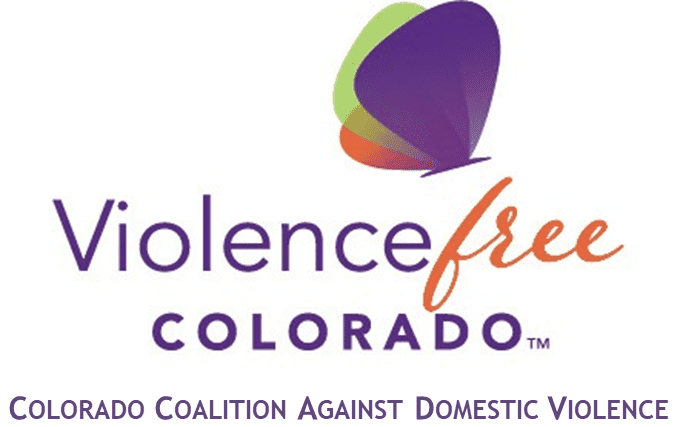This page is intended to serve as a resource to white folks to spark and/or deepen our anti-racism work.
For DV and SA programs, more than ever survivors and your staff of color need you to be addressing:
- How are you having conversations among your fellow staff about racism?
- How are you/advocates having conversations with survivors about racism?
- What are you doing to support your fellow staff of color and advocate for their needs as leaders in this movement?
- What have you done to acknowledge potential harm to your BIPOC staff/survivors/community members and how are you working to make that right?
- What sort of partnerships are you prioritizing in your community? Do these partners support BIPOC lives/representation/safety, etc.?
The crises brought on by COVID-19 and current social events only further emphasizes our need to really engage in these conversations and move forward with actions, especially with white advocates and other leaders in the domestic violence movement.
Some are saying that the time is NOW. But that’s only partly true: this moment has long been coming. We must be responsible for the missed opportunities that have culminated in the now. Anti-racism work is an ongoing process, and doesn’t stop with one time participation. “Challenging conscious and unconscious bias, uplifting and listening to Black voices, and staying informed and active is what it’s going to take to dismantle systemic oppression.” (The Representation Project)
What does anti-racism work have to do with ending domestic violence? EVERYTHING! The same underlying systems of power and oppression that underpin gender violence also perpetuate racial and cultural disparities, injustices, and violence. “Prevention practitioners in sexual and domestic violence are aware of the connection between racism and sexual and domestic violence. This includes the disproportionate rates of violence people of color experience, how the criminal justice system mass incarcerates and punishes more harshly people of color than white people, and how the movement to end sexual and domestic violence replicates oppression, power imbalances, and racism within mainstream and other organizations, to name a few connections.” (PreventConnect) Black women face additional biases when accessing helping services and black survivors are disproportionately more likely to be criminalized by the legal system. Stereotypes amplify the complexities Black women encounter when trying to seek help services (WOCN).
Resources
Updated Oct.2024
On Organizing and Co-Conspiratorship
Dismantling Racism Workbook (dRworks)
Tips of Creating Effective White Caucus Groups by Craig Elliot
Want to be an Ally? Steps to True Allyship (The Female Quotient)
How To Be An Antiracist by Dr. Ibram X. Kendi
The Next American Revolution: Sustainable Activism for the Twenty-First Century by Grace Lee Boggs
For Parents
Anti-Racism Resources for Kids & Families (Denver Public Library)
How White Parents Can Talk To Their Kids About Race (NPR podcast)
On Harm Reduction and Healing
Dear White People, This is What We Want You to Do (Inside the Kandi Dish)
Your Black Colleagues May Look Like They’re Okay — Chances Are They’re Not by Danielle Cadet
An Open Letter & A Call for True Healing Justice by Whitney Spencer
When Antiracism Becomes Trauma by Jessica Isom MD MPH
Types of Mental Health Disorders by Granite Recovery Centers
BIPOC and Substance use Resources by Defining Wellness. Reviewed by Dr. John Elgin Wilkaitis
On Change, Reform, and Transformation
Racial Equity During and After the COVID-19 Pandemic (NLIHC)
In the Workplace
Race Equity and Inclusion Action Guide– Embracing Equity: 7 Steps to Advance and Embed Race Equity and Inclusion Within Your Organization (Annie E Casey Foundation)
What so many get wrong about racism in the workplace
More…
Books
Unapologetic: A Black, Queer, and Feminist Mandate for Radical Movements by Charlene Currethers
Skin, Tooth, and Bone: The Basis of Movement is Our People, a Disability Justice Primer (Sins Invalid)
So You Want to Talk About Race by Ijeoma Oluo
White Fragility: Why It’s So Hard for White People to Talk About Racism by Robin DiAngelo, PhD
Articles
Race to Lead Revisited: Obstacles and Opportunities in Addressing the Nonprofit Racial Leadership Gap (Building Movement Project)
The Co-Opting Of Black Women’s Movements (The Representation Project)
White Privilege: Unpacking the Invisible Knapsack by Peggy McIntosh
From White Racist to White Anti-Racist, The Lifelong Journey by Tema Okun
White People, It’s Time To Prioritize Justice Over Civility by Tauriq Moosa
Podcasts and Other Listens
“We Surrender Nothing and No One”: A Playbook for Solidarity Amid Fascist Terror (Truthout)
Codeswitch (NPR)
Movies and Shows
When They See Us (Netflix) and check out the Learning Companion
Slavery by Another Name (PBS)
13th (Netflix)
* Also be mindful of the impacts of racial trauma in film
Other
Vision for Black Lives (Black Lives Matter)
Showing Up for Racial Justice (SURJ)
75 Things White People Can Do For Racial Justice (Medium)
Lesson Plan for Being an Ally (BLM)
__________
Thank you to the following, used to compile this webpage:
Anti Racism Resources (compiled by Sarah Sophie Flicker, Alyssa Klein)
Resources for White People to Learn and Talk About Race and Racism (Fractured Atlas)
Black Emotional and Mental Health Collective
National Queer and Trans Therapists of Color Network
Native-Specific Mental Health Organizations and Resources
